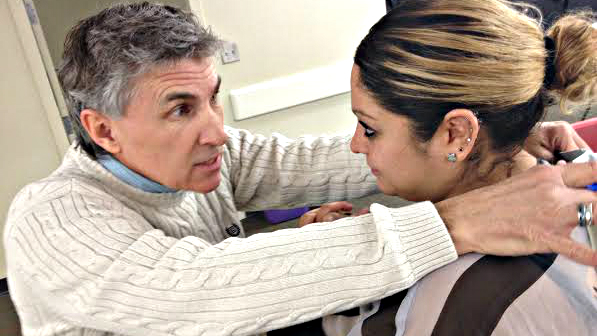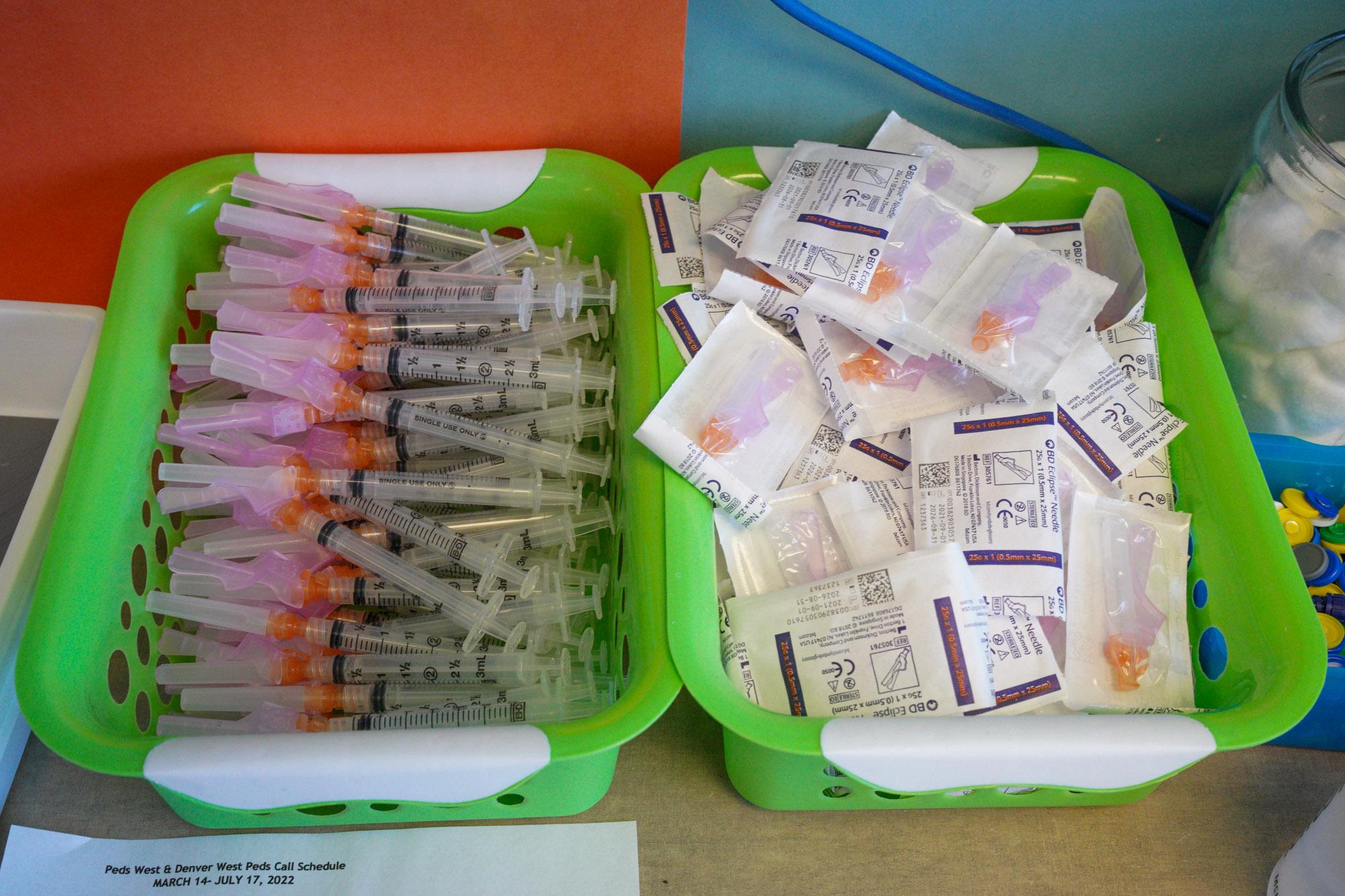
On New Year's Day, the state will switch to a new version of the GED high school equivalency exam and anyone who hasn't completed the old test will be sent back to square one.
The GED is divided into five sections and hopeful graduates have to get through all sections to earn their degree.
It's a process that can take years for some people as they take and re-take the exam.
More than 31,000 Coloradans have already passed some portion of the test but if they don't make the year-end deadline, they'll have to start over.
On a recent Friday morning at 8:00 a.m, the GED waiting room at the Denver Human Services center was already packed.
Among the crowd are hairdressers, felons, mechanics, moms, landscapers and housekeepers.
Some don’t have jobs but some have two or three and had to take the day off to be here.
For many in the waiting room, passing the time means bobbing up and down their knees.
A test administrator tries to reassure the group that the hardest part was just showing up.
“Some of you have been putting it off for a day or two, some of you a decade or two, so welcome,” GED test administrator Diane Johnson says. “Thank you for being here.”
Every one of the 85 people in this room has two things on this cold winter morning: hope and a story.
Each have stories about why they never finished high school or why they’re back to get that piece of paper that will lead them to a better life.
One of the hopefuls waiting in the testing room is 36-year-old Haven Rohnert.
“I came prepared,” Rohnert says. “I have coffee. I brought a water bottle. I brought tissues in case I need to blow my nose. I brought earplugs. And I brought lotions, because it’s Colorado. I came prepared."
While Rohnert is prepared, he’s also super nervous about the test, so he stands up, paces, and sits down.
Rohnert only slept 4 hours the night before and despite already suffering from insomnia, the stress of test made it worse.
“When I was 31, I just was thinking, ‘Oh God,’” Rohnert says. “I guess that education did mean something -- now I’m stuck in a really bad job.”
Rohnert dropped out of school in the 10th grade and struggled with addiction in his 20s. When his marriage ended, as a stay-at-home dad and, he realized how dire his situation.
Like many in the waiting room, Rohnert wants to be sure to pass the GED before the test changes in January.
Not only do they risk losing their progress with the current test but also because rumor has it that the new version will be tougher to match more-stringent high school standards.
“Everything’s changing so dramatically you may not be able to pass it at all without having been to college or something,” GED hopeful Benny Brown says.
Brown, 43, barely remembers school as he dropped out of high school in his teens to work and hustle on the streets of Detroit.
“I wasn’t thinking about GED or school," Brown says. "I was trying to get some money to survive -- pay your bills, eat.”
Brown wants to get certified in diesel auto mechanics but first, he has to pass the GED.
For Brown, the test signals a real challenge because he “hadn't opened a book in decades until he began studying.”
When he felt ready to take the tests, Brown faced a new hurdle: his boss wouldn’t give him the time off for the exams.
So he quit and found a new boss who was more understanding.
Now Brown is trying to get that last test out of the way: writing.
Brown says he’s finishing the GED it in part for his sons.
“They don’t like school,” Brown says. “And I say if I can do it at 43, y’all can do it while you’ve got the chance and it’s free and you know what you’re doing. I passed by the grace of God and on wing and a prayer.”
Heading up Colorado's GED testing center is Chalmer Naugle, a no-arms-length bureaucrat who jokes with the students, trying to put them at ease.
Naugle tells hopefuls that if they walk in the testing room saying they’re not going to pass, he’s going take them outside, throw them in the snow and bring them back in.
He gives prep talks and pep talks.
“I want them to walk into the test room, not full of anxiety, not full of nervousness, but with a smile on their face that says ‘I’m going to pass this test,’” Naugle adds.
If a student walks out of the test room with their head down knowing they’ve failed, Naugle will hand out his phone number to connect them with a tutor.
For Naugle, his work at the GED unit is not just a job.
“It is really my passion and heart,” Naugle says. “When you hear the stories that people give and you see the impact that it has on their lives, you cannot not care.”
Naugle doesn’t just spend time in the classroom but instead He’s out pounding the pavement, trying to get the word out.
“We’ve got hundreds and hundreds into the thousands of students who are 10 and 20 and 30 points away from passing,” Naugle says. “We’re trying to get in touch with them to get them back in take the test.”
Take someone like Ana Rodas, a 51-year-old housekeeper, who stands out among the throngs of GED hopefuls in her bright pink sweater.
Rodas began her journey of completing the GED 16 years ago and has taken the tests more than a dozen times.
Rodas has always wanted to learn more and go beyond her 6th-grade education from Guatemala.
Rodas has passed all of the five tests but not by enough to earn a certificate, just 40 points shy of graduating.
Waiting for the test, Rodas is feeling a little nervous “like always.”
After a few hours, GED hopefuls start filing out of the testing room.
Haven Rohnert, the guy who brought his own earplugs, passes with flying colors. He has his GED.
Ana Rodas and Benny Brown get closer but are still a few points shy of the magic number to pass.
"I’m going to take the test on the next testing day,” Brown says with a laugh. “I’m not stopping -- I done come too far to stop!”









